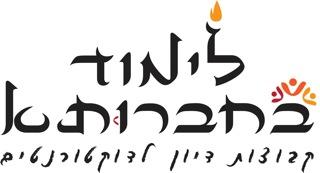"Kolmogorov Comlexity" (גל כצהנדלר – מדעי המחשב)/ "Kolmogorov Comlexity"(Gal Katzhendler – Computer Science)
התער של אוקהם, או "כלל הפשטות", הוא הרעיון הפילוסופי-מדעי שבהינתן שני הסברים אפשריים למאורע, רצוי לבחור בפשוט והקצר מביניהם. סיבוכיות קולמוגורוב הוא תחום שמנסח את התער של אוקאם בצורה מתמטית וניתנת לכימות. בזאת הוא מאפשר לחוקרים ממגוון תחומים לדון ולחקור את הפשטות, ההסתברות, ותכולת המידע של מושאי המחקר שלהם, בצורה ברת כימות. למשל "האם האבולוציה הופכת DNA של בעלי חיים לפשוט יותר, או מסובך יותר?", "האם השוק מעדיף מניות פשוטות?". במתמטיקה ומדעי המחשב, סיבוכיות קולמוגורוב משמשת להוכחות קיום, בדומה לשיטה ההסתברותית. בסטטיסטיקה, סיבוכיות קולמוגורוב מספקת "פריור אוניברסלי" שמאפשר הסקה סטטיסטית אוטומטית.
אנחנו נקיים קבוצת קריאה של הספר "Introduction to Kolmogorov Complexity"; נקרא פרקים נבחרים ונדון בהם בפגישות. דיונים אפשריים עשויים לכלול: "מה הופך אובייקט לפשוט?", "מהי אקראיות?", "האם אפשר לטעון שממצא בודד הוא בלתי סביר מבלי להניח שום הנחה?", ושאלות נוספות שיעלו מתחומי המחקר של המשתתפים בקבוצה. משתתפים מכל תחום בעלי רקע מתמטי חזק מוזמנים להצטרף.
לפרטים: גל כצהנדלר (מדעי המחשב) - gal.katzhendler@mail.huji.ac.il
Occam’s Razor, or the principle of parsimony, is the philosophical and scientific principle that given two equally possible explanations to an event, one should prefer the simpler, shorter one. Kolmogorov Complexity is a field that formulates this principle in a mathematical, quantifiable way, allowing researchers from a variety of disciplines to reason about simplicity, probability, and the informational content of different objects of their studies in a quantifiable way. Some examples might include: “Does evolution make animals’ DNA more simple or more complex?”, “Does the market prefer simpler stocks?”. In mathematics and computer science, Kolmogorov Complexity is used for proofs of existence, similarly to the probabilistic method. In statistics, Kolmogorov Complexity supplies a "universal prior" that allows for automatic inference.
We will be holding a reading group of the book "Introduction to Kolmogorov Complexity"; reading selected chapters, and discussing them in our meetings. Possible discussions may include: "What makes something simple?", "What is randomness?", "Can we argue some single finding is unlikely without any assumptions?", and other questions that relate to the participants' areas of studies. Participants from all fields of study and with a strong mathematical background are invited to join.
For details: Gal Katzhendler - gal.katzhendler@mail.huji.ac.il

